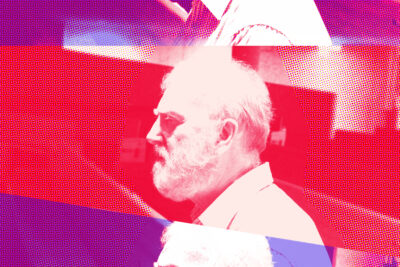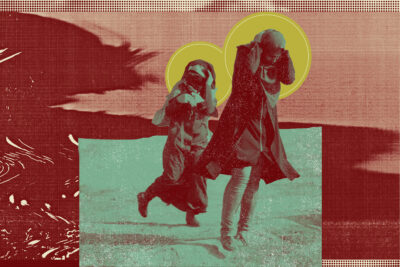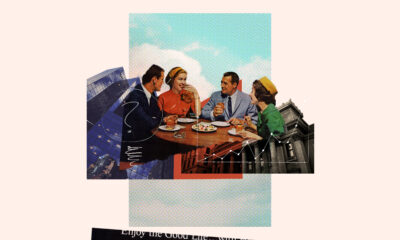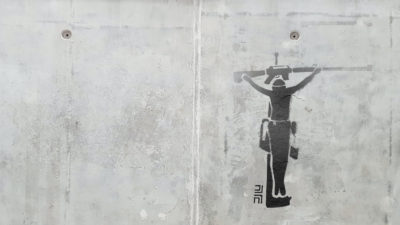In a Nazi concentration camp during WW2, a loaf of bread was stolen. Since the authorities could not find out the identity of the thief, a number of people were randomly chosen to be executed by hanging. One of them was a small boy. The other occupants, mainly Jewish, were forced to watch the execution. As they watched, a voice cried out “Where is God now?!”. An answer came from behind: “On the scaffold with them.”
It seems to me this is fundamentally true. Either, in the face of such evil and pain, it is impossible to believe in a loving God; and so, that God is dead – that God has died on the scaffold with those executed that day, and on so many other days. Or, God is in fact ‘on the scaffold with them’ – is suffering with them – and so many others – that day and every day. In the face of such evil and suffering, it is only possible to believe in a loving God, if that God is ‘on the scaffold’ too, alongside them, and us.
We need a God who suffers with us. And more than that, we need to see and experience God suffering with us, in order to take it in, to really understand it.
It is hard to believe in a God of love who controls everything, in a world of so much suffering. It hard to believe in a God of love even if we are given our freedom by God – our free will – which we are. Because even if God chooses in this way not to control everything, God did choose to create us and the world in this way. And must have known how much suffering would come this way.
We were given freedom in order to receive a great gift – that we might love – because love that is not freely chosen is not love at all. But the consequence is suffering. And as any good parent knows, to love a suffering child is to suffer with that child. And we are God’s children, and we do suffer, terribly. And human suffering and evil was probably never more than in a Nazi concentration camp.
So we need a God who suffers with us. And more than that, we need to see and experience God suffering with us, in order to take it in, to really understand it in our depths in the same way as we understand our suffering. And of course for us Christians, that is where God is: ‘on the scaffold’ – on the cross.
This insight grew from the painful experiences of two World Wars, and the Holocaust of the Jews. It is some kind of answer – or at least response – to the question, “in the face of such evil and suffering – where is God now?”. This question will perhaps always be posed most powerfully by the Holocaust, since as Jewish Holocaust survivor Victor Frankl wrote: “Since Auschwitz, we know what [humans are] capable of.”
Austin Smith, who was a well known English Passionist, was talking to a Dutch Passionist about the upheavals in the Dutch Church in the 1960s. This man said to him: “Of course, you cannot understand unless you have seen your fellow countrymen – people you thought were decent people – in a Christian country – shoot and kill innocent people in cold blood. We have a desperate need to know that there is goodness in the human heart. We have a desperate need for evidence of God, of the goodness of God. Words are not enough.” It is on the cross, on that scaffold, that we can see the evidence that we need.
Related Stories

To Illumine the Mind: the Catholic diaspora in Paris
In Paris, Martin Coffey leads a church overflowing with working class immigrants. The picture of religion in France, he tells us, is not what you think.
Mar 01 2024

Stations of the Cross in Palestine
In Passionist spirituality, the Stations of the Cross are a journey transcending time: repeating in everyday suffering, especially now in Gaza.
Jan 25 2024

A parable to remind us that resistance matters, even in mundane things
Paul McGowan, from our friends at Pax Christi, re-examines the well-trodden 'Parable of the Talents'. What is this is not a lesson about 'gifts', but a story about collaboration and resistance?
Dec 01 2023

